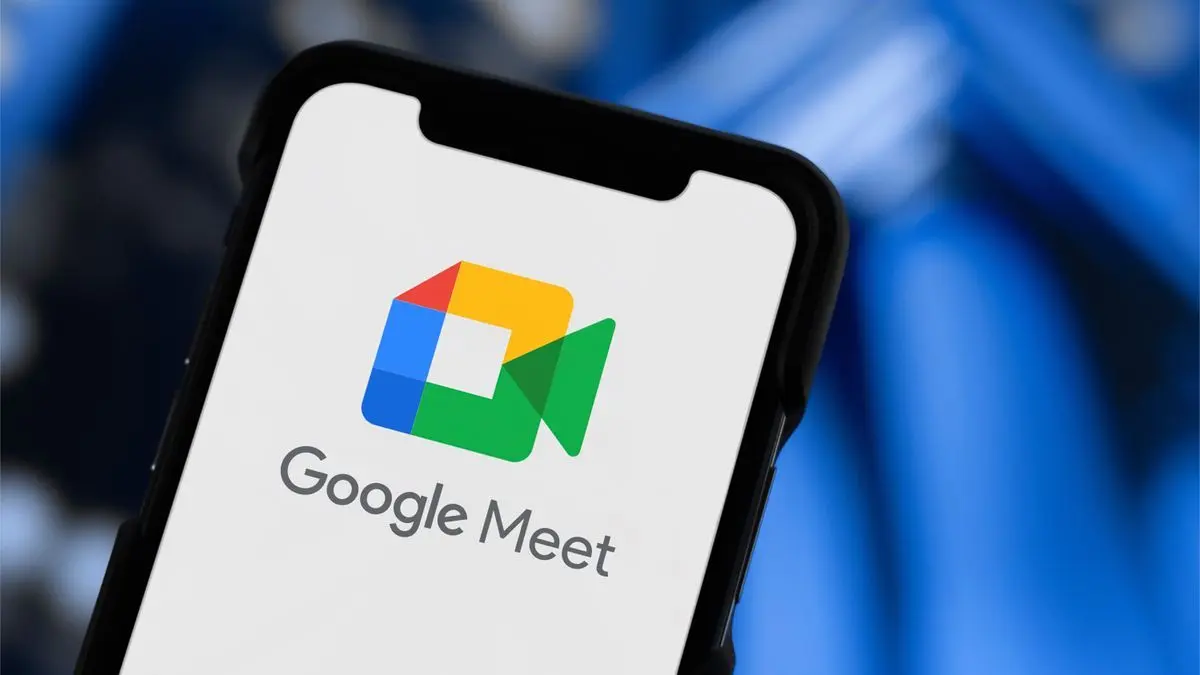Klarna CEO Claims AI Can Replace All Jobs, Halts Human Hiring
4 Sources
4 Sources
[1]
Klarna CEO Sebastian Siemiatkowski claims AI can now perform all tasks, stops hiring humans
Klarna, a leading fintech company, is making waves after its CEO, Sebastian Siemiatkowski, stated that artificial intelligence (AI) is now capable of performing nearly all tasks that were once handled by human employees. In an interview with Bloomberg TV, Siemiatkowski discussed the rapid advancement of AI and its growing role in the workforce, raising important questions about the future of employment. Siemiatkowski revealed that Klarna, known for its "buy now, pay later" services, has not hired any new staff in the past year, leading to a natural reduction in its workforce. The company, which once employed 4,500 people, now has 3,500 employees. This reduction, according to Siemiatkowski, was a result of a typical 20% annual attrition rate seen in tech firms, meaning that about 20% of employees leave every year. Rather than hiring replacements, Klarna chose to let the workforce shrink. "We have a natural attrition like every tech company. People stay for about five years, so 20 per cent leave every year. By not hiring, we are simply shrinking," he explained. Despite the workforce reduction, Siemiatkowski assured that the current employees' salaries would not be negatively impacted. He noted that as the company's salary costs decrease due to fewer employees, the savings could lead to higher pay for those who remain. The move by Klarna comes at a time when the role of AI in the workplace is under growing scrutiny. A 2023 report from McKinsey & Company predicted that millions of workers might be forced to transition into new roles by 2030 as AI continues to evolve. Klarna's approach of not actively recruiting new staff has been seen as an example of how AI is already reshaping the job market. While Klarna's website still lists some job openings, a company spokesperson clarified that the company is not expanding but hiring for essential roles, particularly in engineering. This aligns with the trend of tech companies adjusting their workforce strategies as AI becomes more integrated into their operations. This shift in workforce dynamics is not unique to Klarna. Last year, IBM's CEO, Arvind Krishna, also highlighted the potential for AI to replace certain jobs in the next five years. In an interview with Bloomberg, Krishna predicted that up to 30% of Human Resources jobs could be replaced by AI and automation within that period. "I could easily see 30 per cent of that getting replaced by AI and automation over a five-year period," he said. As AI continues to advance, companies like Klarna and IBM are setting a precedent for how automation could reshape industries and the workforce in the coming years.
[2]
CEO Says He Hasn't Hired Anyone in a Year as He Replaces Human Workers With AI
The head of the "buy now, pay later" firm Klarna is now bragging that artificial intelligence has begun to successfully replace his human workforce. In an interview with Bloomberg, Klarna CEO and founder Sebastian Siemiatkowski said that he hasn't hired any new humans in a year amid the company's push to embrace AI. Since it started that push a year ago, the company lost about 22 percent of its headcount, bringing its total staff numbers to about 3,500 people, the Swedish-born CEO said. Most who left did so of their own volition, and were not replaced. Siemiatowski has repeatedly claimed that he told OpenAI's Sam Altman that he wants Klarna to be the AI firm's "favorite guinea pig." With OpenAI's help, Klarna launched an AI assistant that it says can do the work of 700 humans. The fintech founder told Bloomberg that he's gotten his remaining employees on board with the AI pivot -- roughly 200 of whom use AI in their work -- by telling them they'll see bumps in their paychecks for any productivity gains from the technology. "People internally at Klarna are just rallying to deploy as much efficiency AI as they can," Siemiatowski said. "We're going to give some of the improvements that the efficiency that AI provides by increasing the pace at which the salaries of our employees increases." Along with providing those employee incentives -- which were not spelled out, so we can't really know how much of a financial benefit Klarna workers are actually seeing or what structure those bonuses may take -- Siemiatowski also has used AI to reduce some of his own workload as well, albeit in a gimmicky manner. During a recent quarterly earnings call, Klarna deployed an AI-generated version of its CEO to deliver its financial updates to its shareholders. As a video of the stunt posted on LinkedIn shows, the AI looks pretty sophisticated until it starts moving, developing that strange bubbling effect that many AI videos depicting humans speaking suffer from. Despite the uncanniness, it's clear from Klarna's increased earnings last quarter that it's weathering the decline in headcount. That's great news for Siemiatowski -- but not for his former employees, of course.
[3]
Klarna Is Replacing Workers With AI, but Claims Those Who Survived Cuts Will See Gains 'In Your Paycheck'
Employees are using AI for tasks such as financial analysis and product development. A year ago, the "buy now, pay later" financing company Klarna stopped hiring new employees. Now Klarna is incentivizing its remaining employees to stay, and work harder, by promising higher pay related to AI improvements. "By not hiring, we're simply shrinking," Klarna CEO Sebastian Siemiatkowski explained in an interview with Bloomberg on Thursday. 1,000 people have left Klarna since its hiring freeze started last year, leaving 3,500 workers behind. Siemiatkowski has told employees that as the company's salary costs decrease, and as its productivity goes up thanks to AI, workers will see their salaries increase more frequently. Related: Klarna Says Its AI Assistant Does the Work of 700 People. The Company Laid Off the Same Number of Employees 2 Years Ago. "What we've said to our employees is the total salary cost of Klarna is going to shrink, but part of the gain of that is going to be seen in your paycheck," Siemiatkowski said. "So we're going to give some of the improvements that the efficiency that AI provides by increasing the pace at which the salaries of our employees increase." According to Siemiatkowski, as a result of salary increases, employees are more motivated and internally rallying to use AI. They're using it for tasks like generating images, creating marketing material, running financial analysis, developing products, and interpreting customer service requests, he said. Siemiatkowski told the Financial Times in September that Klarna's goal is to cut its workforce down to 2,000 people with the hiring freeze. He said at the time that the employees who stay will use AI to help fill in the gaps. Klarna has already touted AI's capabilities to replace human work. In February, the company claimed that its AI customer service assistant did work equivalent to 700 full-time, human agents. Related: Klarna CEO Says AI Could Help Reduce Company Headcount By 50% Klarna has even shown that its CEO can be replaced with AI. Last week, the company used an AI clone of Siemiatkowski to report its latest financial results. Klarna and other "buy now, pay later" services like Affirm and Afterpay recently had their best day ever, according to a new report. Adobe Analytics estimates released Sunday showed that shoppers spent a record-high $991.2 million with buy now, pay later on Cyber Monday. Shoppers are also increasingly turning to these services, spending $75.1 billion with buy now, pay later in 2023, a 14% increase from the $65.6 billion they spent in 2022.
[4]
Klarna's CEO says it stopped hiring thanks to AI but still advertises many open positions | TechCrunch
Klarna CEO Sebastian Siemiatkowski recently told Bloomberg TV that his company essentially stopped hiring a year ago and credited generative AI for enabling this massive workforce reduction. However, despite Siemiatkowski's bullishness on AI, the company is not relying entirely on AI to replace human workers who leave, as open job listings -- for more humans -- and the company's own statements confirm. "We stopped hiring about a year ago. We were 4,500, now we're 3,500," Siemiatkowski told Bloomberg TV. "We have a natural attrition, as [does] every tech company. People stay about 5 years -- so 20% leave every year -- and by not hiring, we're simply shrinking." The company's CEO also said he believes AI can effectively replace workers. "I am of the opinion that AI can already do all of the jobs that we as humans do," said Siemiatkowski. "We're gonna give some of the improvements [from] the efficiency that AI provides by increasing the pace at which the salaries of our employees increases." Siemiatkowski often makes this variety of comments. To start 2024, the Klarna CEO said ChatGPT was doing the work of 700 human employees. At another point, he said that Klarna was dropping Salesforce as a CRM provider and replacing it with AI, a comment Marc Benioff expressed skepticism about. Just this week, the Klarna CEO made an AI deepfake of himself to report his financial results, attempting to prove that even a CEO can be replaced by AI. But in practice, while Klarna has significantly reduced its workforce in the last year, the buy now, pay later company has not completely stopped hiring. Klarna is currently hiring for more than 50 roles around the globe, according to the job postings page on its website. Furthermore, Klarna's managers have said they are actively hiring or growing their teams at least half a dozen times throughout 2024, according to posts on LinkedIn viewed by TechCrunch. Klarna also hired several new employees in the last year to fill roles on its policy, software engineering, and global partnerships teams, according to LinkedIn posts from recently hired Klarna employees. Klarna's global press lead, John Craske, tells TechCrunch that Siemiatkowski's comments about hiring are directionally true but says the CEO was "simplifying for brevity in a broadcast interview." "When you look at it historically, we were hiring between one to one and a half thousand people a year from 2019 to 2022," said Craske in an email. "Now, we're not actively recruiting to expand the workforce but only backfilling some essential roles, predominantly engineering." In other words, not every job can be replaced with AI today. While AI may be helping Klarna do more work with fewer people, it's worth noting that Klarna has the same number of employees today than it did in 2021. Like most tech companies, Klarna was hiring a lot during the pandemic. Many companies, including Meta and Amazon, have reduced their workforces in the last few years, either by slowing down hiring or having layoffs. It's also worth pointing out that Klarna is looking to IPO soon. Siemiatkowski could be trying to convince investors that his company is aggressively incorporating generative AI into its workflows and that the benefits are already showing up. But for most companies these days, AI adoption and implementation are happening at a much slower rate.
Share
Share
Copy Link
Klarna's CEO Sebastian Siemiatkowski announces a hiring freeze, citing AI's ability to perform all tasks. The company's workforce has shrunk by 22% in a year, raising questions about AI's impact on employment.

Klarna's AI-Driven Workforce Transformation
Klarna, the Swedish fintech giant known for its "buy now, pay later" services, has made headlines with CEO Sebastian Siemiatkowski's bold claim that artificial intelligence (AI) can now perform all tasks once handled by human employees. This assertion has led to a significant shift in the company's hiring practices and workforce management
1
.Hiring Freeze and Workforce Reduction
Siemiatkowski revealed that Klarna has not hired any new staff in the past year, resulting in a natural reduction of its workforce. The company's employee count has dropped from 4,500 to 3,500, a 22% decrease
1
2
. This reduction is attributed to the typical 20% annual attrition rate seen in tech firms, with Klarna opting not to replace departing employees1
.AI Integration and Employee Incentives
Klarna has been actively integrating AI into its operations, with approximately 200 employees now using AI in their work
2
. The company launched an AI assistant that it claims can do the work of 700 humans2
. To encourage adoption and maintain morale, Siemiatkowski has promised that employees will see salary increases tied to productivity gains from AI implementation1
3
.AI's Role in Various Tasks
Klarna employees are using AI for a wide range of tasks, including:
- Generating images
- Creating marketing material
- Running financial analysis
- Developing products
- Interpreting customer service requests
3
The company even demonstrated an AI-generated version of Siemiatkowski delivering financial updates during a recent quarterly earnings call
2
.Related Stories
Controversy and Skepticism
Despite Siemiatkowski's claims, there are indications that Klarna has not completely halted human hiring. The company's website still lists over 50 open positions globally, and LinkedIn posts suggest ongoing recruitment for certain roles
4
. Klarna's global press lead, John Craske, clarified that while the company is not actively expanding its workforce, it is still backfilling essential roles, particularly in engineering4
.Industry Implications and Future Outlook
Klarna's approach to AI integration and workforce management is part of a broader trend in the tech industry. Other companies, such as IBM, have also highlighted the potential for AI to replace certain jobs in the coming years
1
. A 2023 McKinsey & Company report predicted that millions of workers might need to transition into new roles by 2030 due to AI advancements1
.As Klarna prepares for a potential IPO, Siemiatkowski's emphasis on AI adoption could be seen as an attempt to attract investors by showcasing the company's innovative approach and efficiency gains
4
. However, the true impact of AI on employment and the pace of its integration across industries remain subjects of ongoing debate and scrutiny.References
Summarized by
Navi
[3]
Related Stories
Recent Highlights
1
French Police Raid X Office as Grok Investigation Expands to Include Holocaust Denial Claims
Policy and Regulation

2
OpenAI launches Codex MacOS app with GPT-5.3 model to challenge Claude Code dominance
Technology

3
Anthropic releases Claude Opus 4.6 as AI model advances rattle software stocks and cybersecurity
Technology







